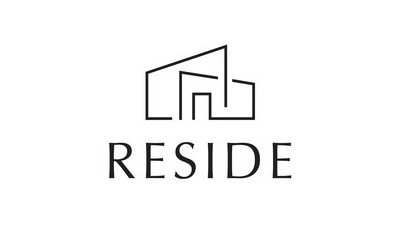Changing Demographics Give Birth To A New Asset Class: Alternative Accommodations

The lines between the traditional asset classes are blurring. Apartment buildings are starting to offer services typically found only at hotels. A younger generation of renters and travelers is demanding housing that offers the flexibility of short-term housing and the luxury services and amenities of hospitality. Enter a new asset class: alternative accommodations — properties that don’t fall neatly within traditional real estate asset classes, including furnished apartments, extended stay, short-term rentals, vacation rentals and corporate housing.
Until recently, alternative accommodations had been too fragmented a category to warrant consideration as an investment class on its own. But increasing demand means that a few skilled operators are now building portfolios of alternative assets that could offer a strong complement to traditional investments.
"Alternative accommodations has similar characteristics to more traditional residential real estate investments,” RESIDE Worldwide Inc. Executive Vice President Derrick LaRosa said. “However, it offers outsized returns in a strong market and a steady fallback in downturns."
Changing demographics have created huge interest in nontraditional forms of lodging. There are now 43 million renter households nationwide, up from 34 million in 2006. The largest chunk of these renters falls between the ages of 25 and 34. As finding long-term housing becomes more difficult, younger Americans are turning toward furnished, short-term solutions that suit a more nomadic lifestyle.
Meanwhile, venture capitalists have been bullish on tech platforms that support alternative housing concepts. Coworking, co-living and shared-housing concepts like Airbnb, Sonder and Lyric have attracted billions in venture funding. But more conservative real estate investors are hesitant to join the new wave. LaRosa believes alternative accommodations may provide a middle ground, offering alternative housing in real property, rather than through a tech platform.
“Clearly there’s traction and interest in alternative housing concepts, but most investors don’t want to stray too far from residential and multifamily,” LaRosa said. “So RESIDE has built a set of properties that resembles a multifamily residential portfolio that is made up of high-return alternative assets."

RESIDE operates a portfolio of apartment-style units that are available for stay from one night to more than a year. LaRosa said the combination of hotel-level services in an apartment setting suits business travelers and young professionals alike. The concept is not new, LaRosa said, but a multicity portfolio of these assets is.
“Most of the companies that offer services like ours are local or regionally focused,” LaRosa said. “RESIDE’s strategy is to consolidate this fragmented market to create an economy of scale and an international brand."
The short-term rental market has undergone a quiet surge in recent years. From 2014 to 2018, the booking value of hotels showed a modest combined annual growth rate of 3%. Meanwhile, short-term rentals had a CAGR of 12%, from $64B to $101B, according to RESIDE. RESIDE expects CAGR to rise to 13% in the next four years, especially as employees who work remotely for tech companies, known as “digital nomads,” become more common.
Alternative accommodations investments also provide an attractive hedge against a possible recession. Investment advisers often tout multifamily as the best play in a downturn, but according to LaRosa, furnished short-term rentals should outperform multifamily. In a strong market, a short-term rental asset can charge tenants more per night than a multifamily asset. And in a weak market, alternatives should remain equally as profitable as multifamily.
“In a downturn, you can un-furnish the apartments and turn the asset into a multifamily building,” LaRosa said. “RESIDE typically offers 50% higher net operating income than multifamily, and sometimes more. And given where we are in the cycle, alternative accommodations is a smart diversification play and a convenient complement to multifamily.”
LaRosa also said alternative accommodations allows investors to spread risk over many markets. Unlike a typical developer, who might own multiple thousand-unit buildings in one market, RESIDE only operates a few hundred units in any city, lowering exposure to risk.
“No one is the leader in the corporate housing space yet,” LaRosa said. “But RESIDE is working to assemble a portfolio that can attract interest from real estate investors who are looking for high margins and a solid hedge.”
This feature was produced in collaboration between Bisnow Branded Content and RESIDE. Bisnow news staff was not involved in the production of this content.

